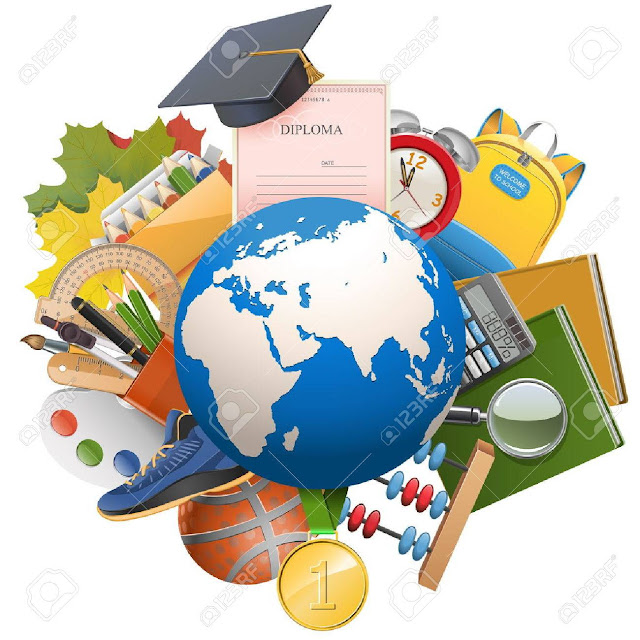Global higher ed, anyone?
Sometime in 2011, the conversation about Higher Education changed.
It may have been 2009, or it may even be that no one noticed until 2012. But there was a transformation, even if it may have appeared on different horizons at different times. This is the time when 'Global' higher education became global.
More specifically, this is a time when private equity, flush with cash with all those easy QE money in the middle of the ruin of most asset classes in the wake of 2008 recession, discovered Higher Ed. That's the time when education conferences started everywhere and Gurus burst into the world stage. Suddenly, entrepreneurs, who would have made a dating site or an e-commerce app at another time, were discovering the global allure of education.
To track this transformation (and to put a date, if one likes), it is worth listing the key changes in the conversation, such as:
- We had the MOOC word. These Massive Open Online Courses were supposed to transform education globally.
- e-Learning became 'EdTech'.
- Instructional Design was the new hot thing.
- Employability - not degrees - is the point of education.
This is a whole new phenomenon than the pretentious 'internationalisation' that public universities speak about. 'Internationalisation' is more about vanity than about scale. The 'global' higher ed was really taking 'international' higher ed to the next level, where it's no longer about the mobility of students. Instead of taking them there, it was supposed to bring 'there' to them: Harvard classrooms to the dusty street-corners of Haryana.
It's an important leap. Global higher ed was to compete with local higher ed - all the new Chinese and Indian universities with their millions of students - stealing the students from their own backyard and changing the dynamic of local job markets. It was the ultimate flat-world machine: It not only thrived on the flatness of the world, but it also was to make the world even flatter. If Yale can be brought to you, why should there be a need for a university at Yala?
Of course, there is this inconvenient matter of degrees. The irritating conversation about degrees and recognition, usually a matter of consistency and integrity, were dismissed out of hand by the new Global educators: This was all the state monopoly to be cast aside once true globality has been achieved. The key assumption here is that all labour markets will converge and there will be no difference between what a 'skill' means in different parts of the world.
But that was then. We are now at a peculiar turn of events when the 'globalisation' that underpinned the quest for global education looks jeopardised itself. Once tables are turned, America doesn't like free trade anymore; Presidents and Prime Ministers across the world, elected on anti-global mandates, are working hard to dismantle the edifice of global trade and monetary system. And, as globalisation goes backwards, it's time to ask - does anyone care for global higher ed anymore?
The MOOCs are neither massive nor open anymore. LMS is an old hat and instructional design is the new voodoo, but the assumption that the students everywhere are all the same has been proved to be fatally flawed. The labour markets, rather than becoming uniform, have split along the global value chain: Skills have imposed a new hierarchy and divided the world in its grids. But the global value chain has not been emancipatory, but rather a prison of possibilities. This is why whole nations are trying to wreck 'globalisation' and trying to discover their own paths; 'Global' education, in context, harking back to a failed experiment.
Indeed, money is still being invested and new enterprises are reinventing the wheel all the time. And, therefore, there is a little reflection about what went wrong. However, for me, it's time to ask some questions, like:
1. How can one construct 'global' models if employability means different things at different places?
2. Does 'learning science', with theories constructed out of experiments in Western classrooms, tell us anything useful how a student in India or China learns?
3. Is education an intensely personal, culturally determined, activity that can't be simply delivered over the internet?
4. Can one be really educated, made 'employable', outside the context of their personal histories, aspirations and social realities?
Most of my work is in international education and these questions have very real, everyday significance for me. Since I have seen the challenges from the close quarters, my quest has been to build models of 'global-local' education, of the sort that opens one's mind while keeping one grounded and engages in sense-making rather than 'skill-building' of the popular variety. Though this roundabout route, I came to the old adage - that education is not about a bucket to be filled but rather a fire to be lit - and the sad conclusion that world's education problems are not going to be solved by the self-appointed 'global' education disruptors.


Comments